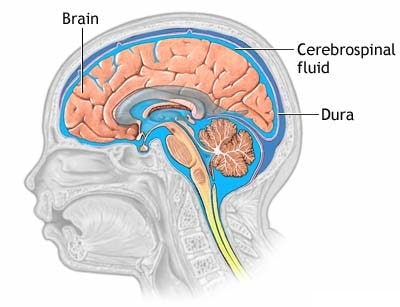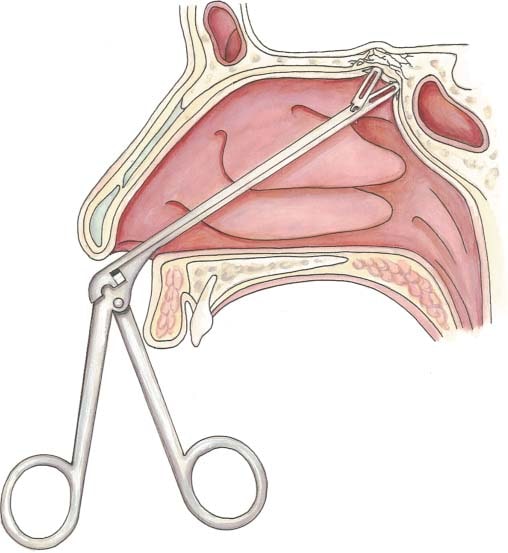Endoscopic repair of CSF leak from the nose in Iran
The brain and the spinal cord are both surrounded by a clear fluid that is called cerebrospinal fluid (CSF). This fluid provides protection for them from injuries and helps in deliver the nutrient materials to them and removing their waste.
The CSF is supposed to remain in the meninges, but sometimes CSF leak can occur due to the presence of a defect in the dura mater or the skull that is caused by an injury for example. Furthermore, this condition can be rare but it requires proper treatment, because if left untreated it might cause dangerous complications.
Due to the high costs of the treatments and to the absence of proper medical care in some countries, some patients look for the treatment in other countries. If this is the case for you, then we ask you to read this article to know more about this surgery and about the reason to consider having endoscopic repair of CSF leak from the nose in Iran.
What are cerebrospinal fluid and (CSF) leak?
Cerebrospinal fluid is a transparent liquid that surrounds the brain and the spinal cord to protect them from any impact, provide them with nutrients, and remove their wastes.

Due to some birth defects, injuries or a brain surgery, the meninges might get perforated causing CSF to leak from the nose among other parts of the body.
The causes of CSF leak
Most of the CSF leak cases are connected with head injuries but it can be caused by other factors such as an infection, brain tumor, surgery on the head or by an epidural injection. Furthermore, CSF leak can sometimes occur after a nose job.
The diagnosis of cerebrospinal fluid (CSF) leak from the nose
The doctor will usually use an endoscope to check your nose and might ask you to lean for a while to check for drainage. If the doctor was able to collect drainage, he/she will test it to see if it contained a protein called beta-2 transferrin.
On top of that, the doctor might ask for a CT and MRI to help him/her determine the exact location and severity of the leakage.
The signs and symptoms of the cerebrospinal fluid (CSF) leak
The patient who have CSF leak usually suffer from a few symptoms that include:
- Headache: the headache is due to the loss of CSF, which makes the brain sag in the skull. It is affected by the patient position (the headache usually worsen when the patient is standing or sitting up and gets better when he/she is laying back).
- Tinnitus: the patient might hear a ringing in his/her ear.
- Loss of balance.
- Pain and stiffness in the neck.
- Vertigo and dizziness.
- Sensitivity to light and/or sounds.
- Some patients might suffer from changes of vision, changes of taste and fatigue.
CSF leak vs. migraine
Because both CSF leak and migraine can cause severe headaches that are almost similar, some patients might be misdiagnosed with migraine when they actually have CSF leak. To make things even worse, both conditions can cause tinnitus. However, if you noticed that you are suffering from tinnitus while not having a headache then you should consider the possibility that you are suffering from CSF leak.
CSF leak or runny nose
Many patients are misdiagnosed with sinus problems instead of CSF leak because runny nose is a common symptom for sinus problems. To avoid the confusion, you should know that when having runny nose due to CSF leak, the dripping will be constant and will come from one nostril.
The treatment of the cerebrospinal fluid (CSF) leak
First, the doctor will try non-surgical treatments like bed rest, IV caffeine infusions, and saline infusions. If these methods did not work, the surgeon will try surgical treatments.
The surgical procedure depends on the location of the leak. CSF leak from the ear requires an open surgery while CSF leak from the nose can be done by using the endoscope through the nose.
Who is a good candidate for endoscopic CSF Leak Closure?
A good candidate for endoscopic CSF leak closure is the patient who suffers from CSF leak from the nose and who did not get better after undergoing non-surgical treatments.
How is the surgery done?
During the endoscopic repair of the CSF leak from the nose, the surgeon will use a tiny tube that is attached with a light and a camera. The surgeon will insert the endoscope through the patient’s nose to locate the exact place of the leak. Afterward, the surgeon will put a small piece of tissue from the nasal lining there.

The surgery is usually done under general anesthesia. Most patients might have to stay for two to three days in the hospital before they can go home.
What you should do after endoscopic CSF leak closure?
After the surgery, your doctor will ask you to follow a few instructions to help you recover. These instructions include:
- You should not lift heavy objects.
- You should use a stool softener instead of straining to have a bowel movement.
- You should not cough or sneeze, but if you had to you should do it with your mouth open.
- You should not blow your nose.
The recovery period for endoscopic CSF closure usually takes from 4 to 6 weeks. After that, you should be able to go back to your job.
Possible complications for endoscopic CSF leak closure
Although meningitis is considered the most common side effect that is associated with endoscopic repair of CSF leak from the nose, but the possibility of the occurrence is about 0.03%. Some patients might suffer from other complications such as hydrocephalus, intracranial abscess, and mucocele formation.
Why you should consider having endoscopic repair of CSF leak from the nose in Iran?
Iran is considered one of the best places to have an endoscopic CSF Leak repair surgery because it provides fine medical care in its hospitals, clinics, and medical centers. Iranian hospitals are equipped with the most advanced medical devices and their staffs are professionally trained.
Iran has some of the best doctors and surgeons in the world. Those doctors are well trained and have tons of experience, so you can be certain that you will have the best results in Iran.
On top of that, you can save a lot of money when having surgery in Iran. The prices in Iran are far lower even with the cost of the accommodation and the traveling expenses.
Why to undergo endoscopic CSF leak from the nose in Iran with Dr. Saeedi?
Dr. Masoumeh Saeedi is one of the experienced ENT, head and neck surgeons and otolaryngologists in Iran. She has had her otolaryngology fellowship about 12 years ago, in which she was ranked first in the country. Since then, she performed more than 5,000 successful complicated surgeries including many surgeries for the repair of CSF leak from the nose and the ear to both Iranian and international patients.
Dr. Saeedi has undergone many specialized courses in medically-developed countries such as Germany, France, Malaysia, South Korea, Portugal to name a few. She was also able, at the age of 33 only, to become an associate professor of otolaryngology in Baqiatallah University of medical Sciences in Tehran.
By undergoing endoscopic repair of CSF leak from the nose in Iran with Dr. Saeedi, you can rest assured that you are under the knife of an experienced surgeon who does every effort to achieve the best results and provide the best treatment to her patients. Please contact us now to have a free online consultation on endoscopic repair of CSF leak from the nose in Iran with Dr. Saeedi.
Cost of endoscopic repair of CSF leak from the nose in Iran with Dr. Saeedi
Even though the prices of the CSF leak surgery vary a lot depending on the location and the cause of the leak, we can say it is a very expensive procedure. In the USA, it can be up to $50,000 and in the UK it can be around $75,000. This is while the prices of endoscopic repair of CSF leak from the nose in Iran with Dr. Saeedi are much lower as it costs about quarter that amount. Please throw us a message to have a free online consultation and quote on endoscopic repair of CSF leak from the nose in Iran with Dr. Saeedi.
Frequently asked question about endoscopic repair of CSF leak from the nose
Can CSF leak cause high blood pressure?
Well, it is rare but possible for CSF to cause high blood pressure.
Can CSF leak cause meningitis?
Yes, meningitis is the most common complication that accompanies cranial CSF leak, but spinal CSF leak does not raise the risk of having meningitis.
Can CSF leak cause fever?
Yes, fever can be associated with CSF leak. And because of this fever and neck stiffness, some patients sometimes get misdiagnosed with migraine or allergies.
Do CSF leaks heal themselves?
In many cases, there is a possibility that the leak heals by itself without any medical intervene.
Does CSF leak show on MRI?
Brain MRI scan can be used to help the doctor specify the exact location of the leak.
Does CSF leak cause dizziness?
Yes, some of the patients can feel dizzy due to a CSF leak.
Does CSF leak show on a CT scan?
Just like MRI, CT scan imaging can help determine the exact location of the leak.
How is CSF leak treated?
When the leak does not heal by itself, the doctor will first try some non-surgical treatments. If that too did not work, the doctor will suggest surgery.
Can CSF leak from both nostrils?
No, if you have a runny nose due to CSF leakage, the dripping will be constant and come from one nostril. If the dripping comes from both nostrils, then you are likely suffering from sinus problems.
Online Consultation, Directly with Dr. Saeedi
Ask your question via WhatsApp, and if you wish, Send your photo for a more accurate assessment.
Free Consultation on WhatsApp

How long after an i jury or infection does CFS
begin.
hello, Chronic fatigue syndrome (CFS) usually does not begin immediately after an injury or infection. In many individuals, symptoms gradually appear several weeks to a few months following a viral infection or significant physical or emotional stress. Some patients report that their symptoms started about 4 to 6 weeks after a severe infection, such as influenza or mononucleosis. However, this timing can vary from person to person, and there is not always a clear, direct connection between an injury or infection and the onset of CFS.